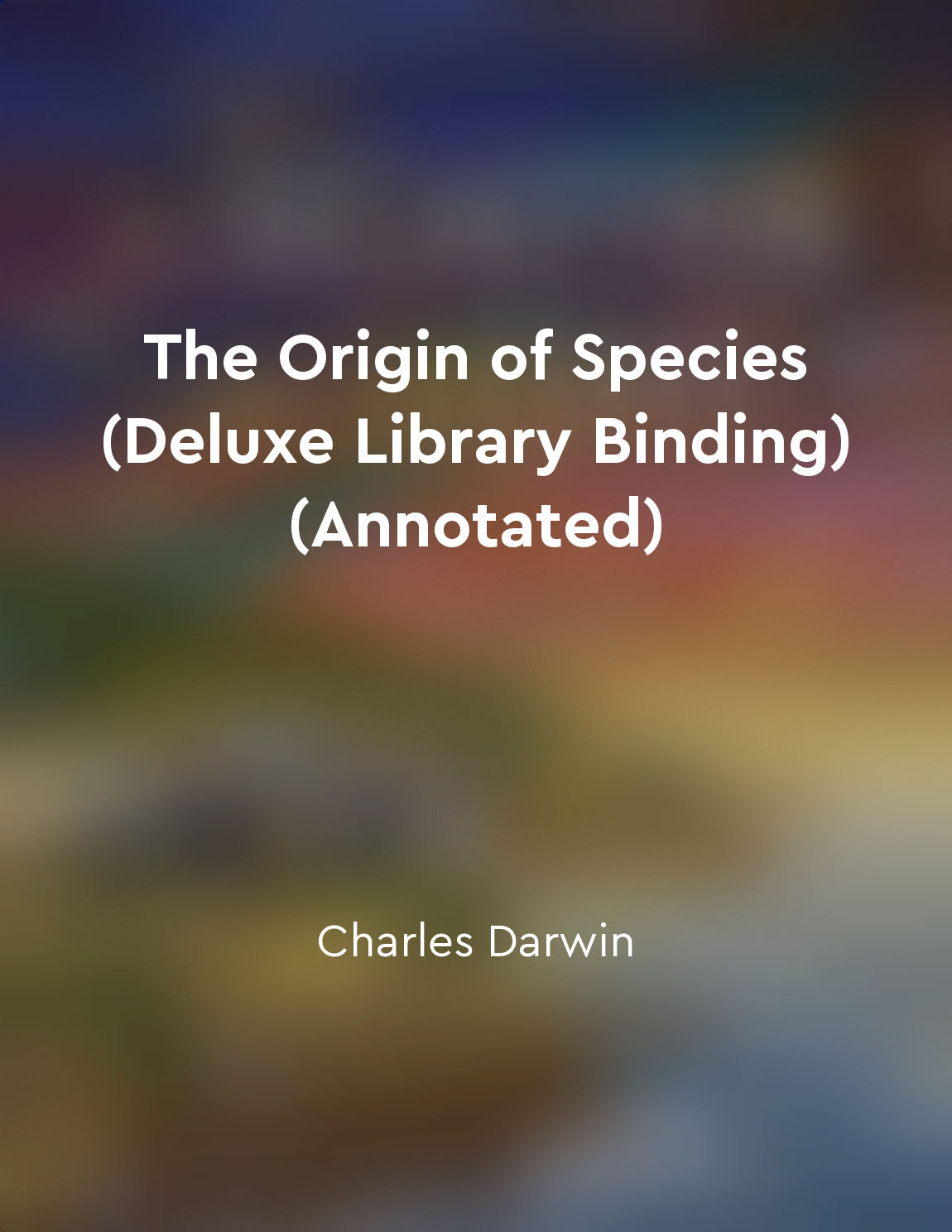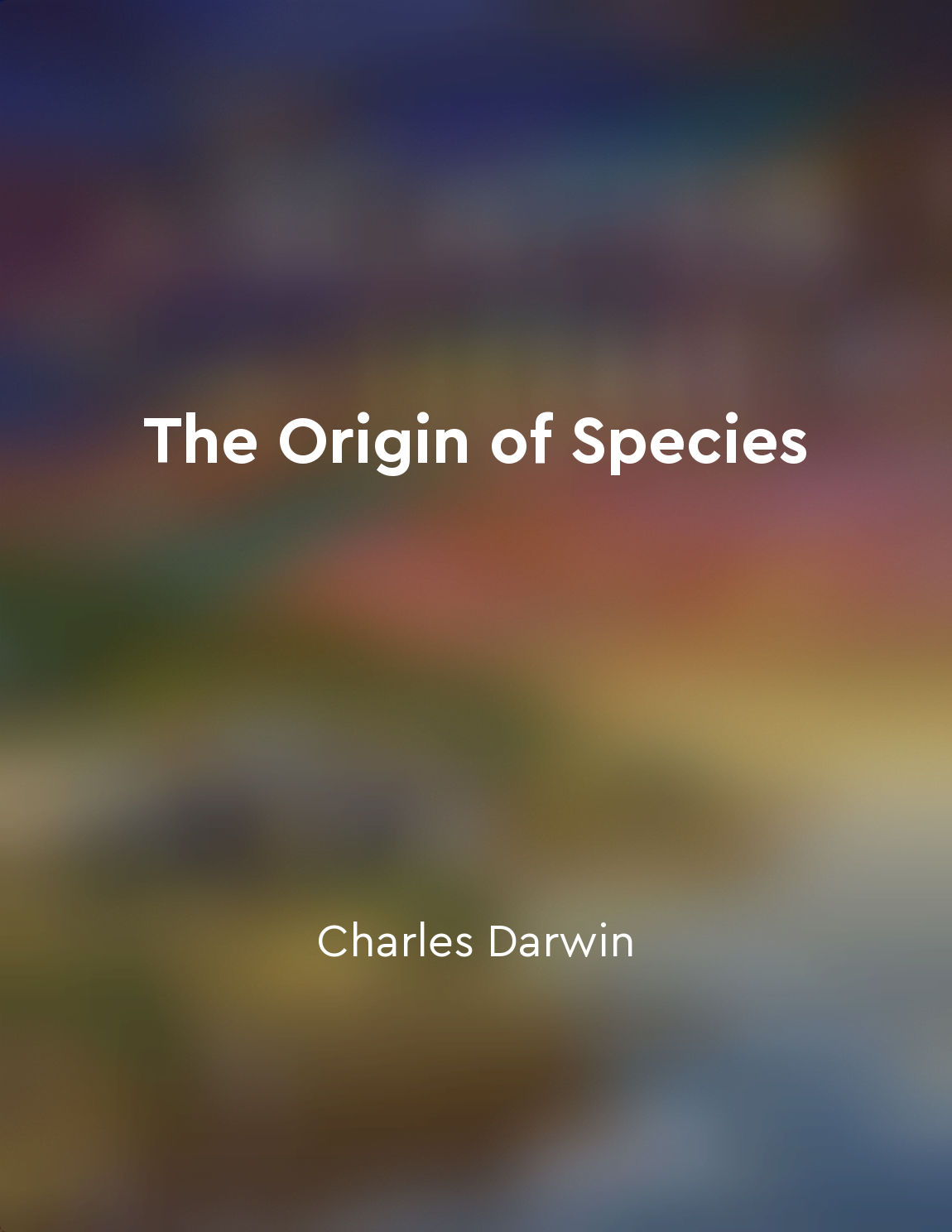Geographic isolation leads to speciation from "summary" of The Origin of Species by Charles Darwin
Darwin proposed that when a population becomes geographically isolated, it can lead to the formation of new species over time. The isolation prevents individuals from different populations from interbreeding, which can result in the accumulation of genetic differences between them. As these populations become more genetically distinct, they may eventually become reproductively isolated from one another, meaning that they can no longer produce viable offspring together. This process of geographic isolation followed by genetic divergence and reproductive isolation is a key mechanism in the formation of new species. It can occur in a variety of ways, such as when a physical barrier like a mountain range or a body of water separates a population into two or more smaller populations. Over time, these populations may evolve in response to different environmental conditions, leading to the formation of distinct traits and adaptations. For example, if one population is exposed to different food sources or predators than another population, natural selection may favor different traits in each population. These differences can accumulate over generations, eventually leading to the evolution of distinct species. In this way, geographic isolation can drive the process of speciation by creating opportunities for populations to diverge and evolve independently of one another. Darwin's theory of evolution by natural selection provides a framework for understanding how geographic isolation can lead to speciation. By studying the patterns of biodiversity and the distribution of species around the world, scientists can gain insights into how new species may have arisen through the process of geographic isolation and adaptation to different environments. This concept highlights the dynamic and ever-changing nature of life on Earth, with new species continually evolving in response to their surroundings.Similar Posts
Ecology studies the interactions between organisms and their environment
Ecology is a branch of biology that examines the relationships between living organisms and their surroundings. It delves into ...
Practical experiments are key to reinforcing theoretical knowledge
Practical experiments play a crucial role in solidifying the understanding of theoretical concepts. The hands-on experience gai...
The connection between biology and psychology
The relationship between biology and psychology is a complex one, as the two disciplines are closely intertwined. From a biolog...
Consumer education is essential in promoting informed choices about genetically modified foods
Consumer education plays a crucial role in shaping public opinions and attitudes towards genetically modified foods. Without pr...

Diversity leads to success
In any complex and unpredictable environment, success often hinges on the ability to adapt. One key factor that can drive succe...
Parmenides argued for a single unchanging reality
Parmenides was one of the earliest Greek philosophers, and he put forth a bold idea that challenged the prevailing beliefs of h...

Over time, populations diverge
As generations pass, slight variations inevitably arise within populations. These variations may seem insignificant at first, b...
Reproduction ensures species survival
Reproduction is a fundamental process in biology that ensures the survival of a species. Without the ability to reproduce, a sp...
Evolutionary psychology explores the origin of human behavior
Evolutionary psychology delves into the roots of human behavior, seeking to understand why we act the way we do by examining ou...

Diversity leads to resilience
The concept of diversity leading to resilience is a fundamental principle in the natural world. When there is a wide range of d...

